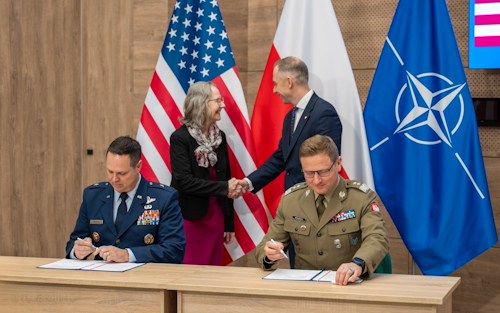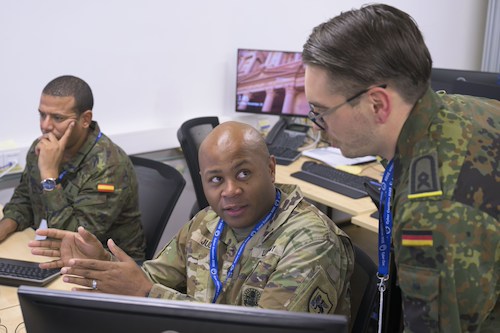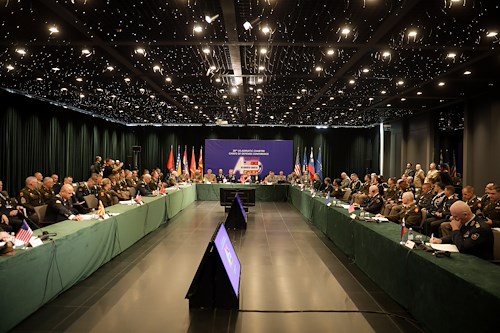While COVID19 continues to create challenges across all segments of society, the U.S. military in Europe continues to stand the watch. Approximately 72,000 military men and women and civilians who live and work across the European theater are maintaining warfighting readiness and deterrence, while taking appropriate measures to prevent the further spread of the virus.
"Never has there been a more important time for our military to remain ready and responsive than during this ongoing public health crisis," said Maj Gen Jeffrey Kramer, director of U.S. European Command's (USEUCOM) exercises and training programs. "The ability to respond quickly and to adjust at a moment's notice is instrumental in our ability to maintain our readiness. The current environment with this public health crisis has demonstrated our ability to do just that."
Regular training and coordination with Allies and partners enhances already strong relationships, and improves our ability to respond together in time of need.
The response to the COVID19 outbreak during Exercise Defender-Europe 20 is one example of how Allies and partners worked together in a crisis and adapted to defend the health and safety of our personnel and communities.
With more than 6,000 soldiers deployed from the U.S. to Europe, Exercise Defender-Europe 20 demonstrated the ability to move more than 3,000 pieces of equipment from ports to training areas, and more than 9,000 pieces of Army prepositioned stock from storage sites to training areas. When the virus outbreak expanded around the globe, leadership from all participating units came together to reduce risks, including modifying and canceling events.
"While we did not make it through all of the elements of Exercise Defender-Europe 20, we learned a number of lessons that have enhanced our already existing military strengths," Kramer said.
Commander, U.S. European Command, Gen Tod D. Wolters commented that in light of modifying and reducing the scope and size of Exercise Defender-Europe 20, lessons were still captured.
"There are valuable lessons learned that we've embraced along the way," Wolters said. "The mere aspects of the cooperation and planning that went into each one of the compartments of our exercises was a gain in training, and it certainly built trust."
Linked exercises to Defender-Europe 20, along with a number of other events planned into the summer, were cancelled or may be modified or delayed to provide the intended training safely. Between now and the end of May, exercise planners from all components across the European theater will review options and identify other ways to practice maneuvers and improve command and control elements.
While the health of USEUCOM forces and our communities remains a top priority, the ability to continue to work closely with Allies and partners to develop next steps once the COVID19 virus outbreak has passed remains a focal point for exercise planners.
"We have learned a great deal from the adjustments that were made for Exercise Defender-Europe 20 and other activities we had planned into the spring," said COL William Donnelly, lead exercise planner for USEUCOM's training and exercise department. "We've stayed in regular contact with our service components and Allies and partners to talk through the various methods in which to keep our programs going, despite the challenges associated with the virus outbreak."
Kramer added, "Our components continue to impress with their agility and flexibility while caring for their own personnel affected by the virus and those of the host nations where we live and work."
U.S. Army personnel in Germany, Poland and other locations continue to conduct individual and unit-level training, such as gunnery exercises to maintain tactical proficiency and readiness.
Across the European theater, the Navy has forward deployed guided-missile destroyers underway on patrols, providing critical maritime security and deterrence. Maritime patrol and reconnaissance aircraft, P-8 Poseidons, patrol in the Black Sea, Eastern Mediterranean Sea, and the Arctic, remaining ready and responsive.
Additionally, planners and operational teams are communicating through secure video-teleconferencing and regular phone calls and emails to improve communication practices across all domains during the current virus outbreak.
"We've found ways to communicate with one another more efficiently as a result of the virus," said Donnelly, "and that will be a good thing in the long run because it will help us with how to manage training in the future."
Powered by Froala Editor




